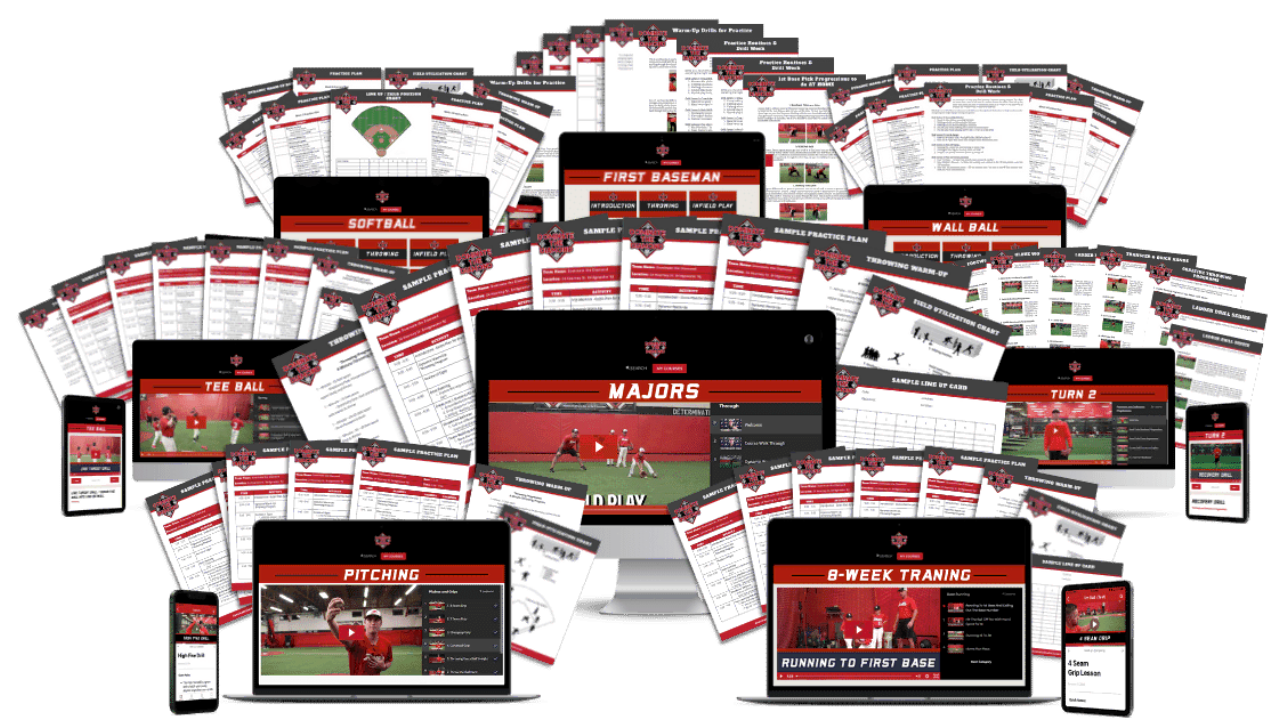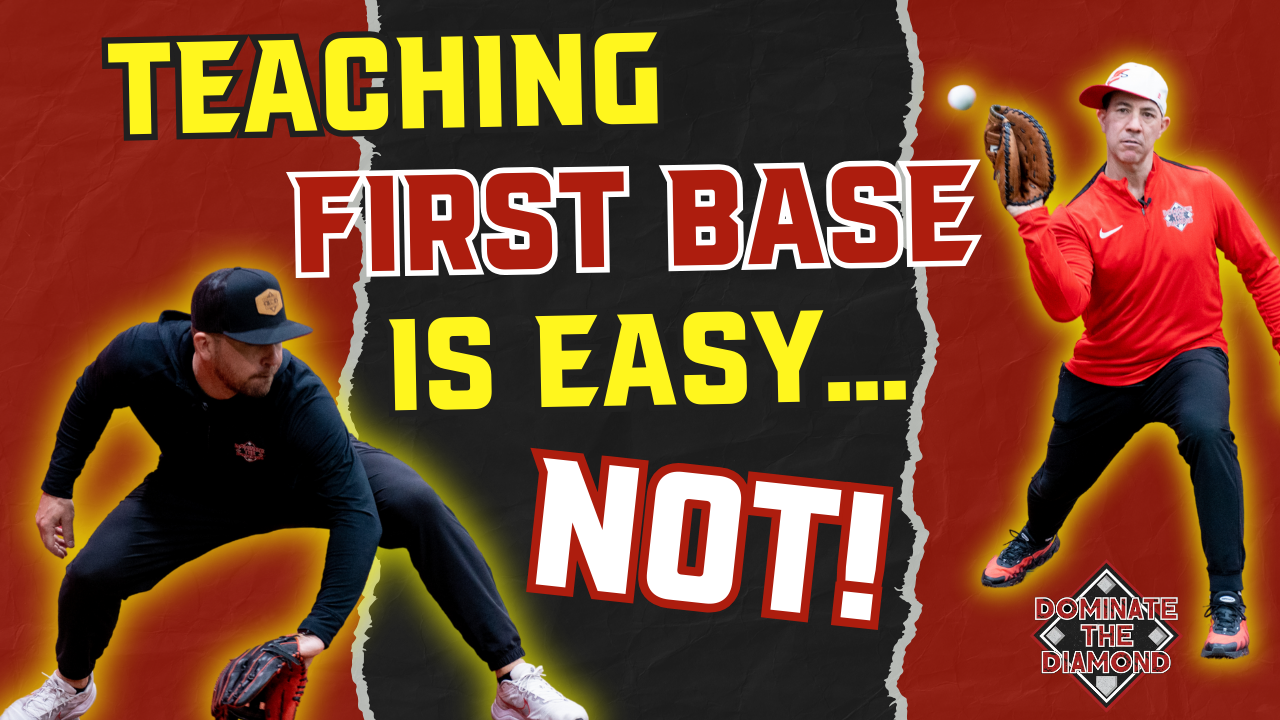Success In Youth Baseball Starts With Your Coaching Philosophy

Coaching youth baseball is more than just teaching kids how to hit, throw and catch. You’re also there to be a mentor, role model, and leader. The overall success of your team and continued player improvement hinges on one crucial thing - your coaching philosophy. It doesn’t matter whether you’re new to coaching or have been on the field for years - using clear and well-defined principles will not only create a winning team but shape young lives.
But what exactly is a coaching philosophy? Why is it so important and how can you share it with your team?
Defining Your Coaching Philosophy
A coaching philosophy is your personal blueprint for how you plan to teach and guide your players. It reflects your core values and beliefs about the game. Think of it as the “why” behind everything you do as a coach. It’s not just about winning games - it’s deciding what principles will guide your decisions, determining how you interact with your players and creating the kind of environment that will inspire your team.
For example, will you prioritize developing your players or about winning at all costs? Is teamwork and sportsmanship more important to you than relying on one star athlete? Ask yourself questions that will help you reflect on the type of coach you want to be.
Why A Clear Coaching Visions Matters
Having a clear coaching strategy is like having a compass that always points you in the right direction. No matter what the situation is, you'll know exactly which way to go. Here’s why having a clear coaching philosophy is so important:
Keeps you on track and steers your decisions: With a clear framework you have a reliable roadmap to your coaching that is key to player development. Your players will know what to expect from you and you’ll be confident in handling a variety of situations, from game-day decisions to dealing with parents’ concerns.
Builds Trust and Respect: When players and parents see that you have a fundamental coaching approach and stick to it, they’re more likely to trust and respect you. They know exactly where you stand and what to expect, which creates a positive team dynamic.
Decision-Making Is Easier: Whether it’s deciding on playing time, handling conflicts between players, or guiding your team through a tough loss, you have a clear outline for making decisions. This framework makes it possible for your choices to match your core values and contributes to the betterment of the team.
Boosts Your Confidence: As a coach, knowing your style and leaning into it will give you the confidence you need to lead your players through both successes and challenges. You’ll have a clear sense of purpose, which will make leading your team easier.
How To Develop Your Coaching Approach
Creating your unique coaching style doesn’t have to be complicated, but it does mean taking a look at yourself. Here are some steps to help get you started:
Consider Your Core Values: Ask yourself, what are the most important values you’d like to instill in your players? Your teaching methods should reflect this approach.
Examine Your ideas About Player Development: You’ll have to decide how to balance winning games with developing your player’s skills and character. What’s most important to you? Is there a way to balance the process with the outcome?
Think About Team Culture: What kind of dynamic do you want to build with your team? Will it include a culture of competition or one of inclusivity and support? Your philosophy should shape the way you coach.
Be Open To Growth: Your coaching techniques aren’t set in stone. As you gain more experience or face new obstacles the way you choose to handle situations might change. Be open to this and be willing to adjust your approach accordingly.
Sharing Your Coaching Strategy With Your Team
Once you’re set on which coaching method you’re going to use, it’s important that your team understands it too. Keep everyone on the same page by:
Having a team meeting: At the start of the season it’s important to hold a meeting with players and parents to share your coaching philosophy. This is the perfect chance to explain how you approach coaching, what you value and what you expect from your team. Be clear and straightforward and encourage questions to make sure everyone understands your standards.
Putting things in writing: It might be a good idea to create a written statement of your philosophy to share with players, parents and assistant coaches. This can be a simple document outlining your key values, expectations and principles. A document reinforces your message and provides everyone with a reference they can return to.
Lead by example: Actions always speak louder than words. The best way to demonstrate what you believe in is by living it out in the feld. If you value teamwork, make sure you’re encouraging collaboration during practice. If sportsmanship is important to you, model respectful behavior and make sure you hold your players to the same standards.
Reinforce your expectations throughout the season: To keep your coaching methods consistent all season long, regularly remind your team about your core values. Keep reinforcing how those values tie into everything you're doing together. Use practice sessions, pregame huddles, and moments after a tough loss as opportunities to put your beliefs into action.
Coaching Philosophy Ideas
To help you get a better feel for this concept, below we outline some examples of different coaching approaches:
“Player Development First”: With this approach the emphasis is on developing individual player skills with the understanding that at first it might mean you don’t win as much. By focusing on individual growth, effort, and improvement, you'll build a more skilled, well-rounded, and successful team over time.
“Teamwork Makes the Dream Work”: You may have heard this popular quote a lot. Mostly because it holds true. Focusing on building a strong team bond is more important than individual stats for overall success. Encourage your players to work together, support one another, and communicate openly.
“Respect for the Game and Each Other”: Instilling a deep respect for the game, the rules, the officials and each other. Focus on teaching your players to play with integrity and honor, regardless of the score.
If you’re looking to enrich your coaching approach grab our 8-Week Team Training and Winning Mindset course bundle at Dominate the Diamond. Packed with strategies that celebrate the game's joy alongside skill development, these resources are your next step toward a coaching style that truly benefits your team. They can help you balance the art of winning with the heart of baseball.








